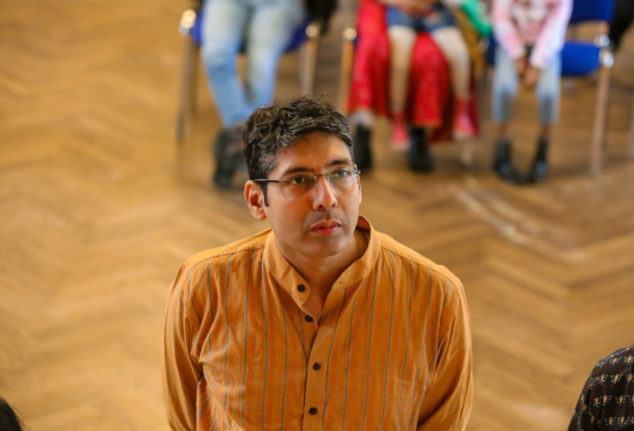What is the shortage test?
The shortage test, known as arbetsmarknadsprövning in Swedish, is a system where prospective labour migrants wanting to work in Sweden will only have their work permits approved if they are filling a position where there is a national shortage.
Sweden has had this system before. It was scrapped in 2008 by the then-Moderate government led by Fredrik Reinfeldt, a move which migration minister Anders Ygeman said had caused issues in Sweden, such as extensive labour immigration for low-qualified jobs for which there is no shortage of labour nationally.
“Deregulation has led to serious consequences for the country,” Ygeman said at a press conference on Thursday, going on to say that there “have been many warning signals over the years”.
Who will be affected?
Firstly, this would mainly affect people who are not currently working in Sweden and applying for their first work permit in the country.
The law would only affect non-EU, non-Nordic people wishing to work in Sweden. EU and Nordic citizens have the right to live and work in Sweden without having to apply for a work permit.
It’s hard to say at this stage which professions would be affected, but a look at Denmark’s version of the system, the “positive list”, may provide some insight.
Denmark’s list for those with a higher education includes architects, healthcare professionals, teachers and programmers, and their list for skilled workers includes laboratory technicians, chefs, electricians, social and healthcare assistants and hairdressers.
It’s unclear how the law could be applied to those who are already working in the country, but it could mean that you run into issues when it’s time to renew – although, it should be stressed that any change in law is unlikely to happen for at least a year and a half, if it happens at all.
READ ALSO: How will the new work permit law just passed in Sweden affect foreigners?
What do Sweden’s political parties say about the shortage test?
Unsurprisingly seeing as they scrapped it last time they were in government, the Moderates are still against the shortage test.
The Centre Party, Liberals and Green Party are also against reintroducing the shortage test, arguing that employers are better placed to decide whether they have a labour shortage than government authorities.
The Christian Democrats, Sweden Democrats and Left Party are backing the Social Democrats, with all three in favour of reintroducing the shortage test, but for different reasons.
The Left Party argues that it will prevent the exploitation of foreign workers, whereas the Christian Democrats and Sweden Democrats believe it should be introduced for all positions with a salary of less than 35,000 kronor per month, with no shortage requirement on positions with a higher salary.
When will it be introduced?
It may not be introduced at all. So far, the government have said that they plan to investigate the reintroduction of arbetsmarknadsprövning, but the investigation won’t start until the summer, after which it is expected to take at least a year.
That means that any change in law is unlikely to happen before the second half of 2023, making the return of the test reliant on the Social Democrats winning September’s election.
If the opposition parties were to win September’s election, it is even less likely that this law would be introduced. A more likely scenario in that case would be the introduction of a lower salary cap on work permits, meaning that applicants would have to secure a salary above a certain limit before they can be granted a permit.
It’s unclear what this salary would be, although the Moderates have previously argued it should be at least 85 percent of Sweden’s median salary, which would place the limit at aroung 27,500 kronor a month.
The Sweden Democrats and Christian Democrats are in favour of a higher cap, which would require prospective immigrants to earn at least 35,000 kronor to work in Sweden.





 Please whitelist us to continue reading.
Please whitelist us to continue reading.
Member comments